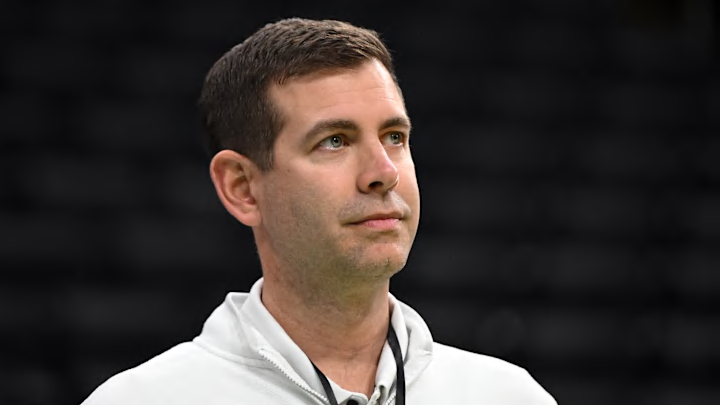Monday’s 105-103 loss to the Utah Jazz dropped the Boston Celtics to 3-5 on the season. After what was an impressive last-stitch effort by the Cs in the fourth quarter, they wound up getting buried by a Jusuf Nurkic putback layup.
Unironically, as we all expected.
Rebounding has significantly plagued the Celtics through these first eight games. When they’ve been bested on the glass, it’s led to losses every time. Boston currently ranks 29th in defensive rebounding percentage and opponent offensive rebounding percentage, 28th in opponent offensive rebounds, and 25th in opponent second-chance points.
What do all of these categories have in common?
They’re impacted by rebounding.
There are plenty of high-level basketball aspects that affect their ability to compete on the glass, but frontcourt depth remains the most obvious issue. It always was going to be this way. Even with Neemias Queta (probably) outperforming expectations, the Celtics still lack talent down low. Not to mention they’re missing the ninish rebounds per game that Jayson Tatum provides.
These early struggles have motivated some fans to fire up the trade machine. I was on Reddit this afternoon and saw someone pitch the idea of trading for Minnesota Timberwolves center Naz Reid.
To be clear, I’m not writing this to dunk on the person who made the post. They picked a player who makes a reasonable salary, which the Celtics have the contracts to match financially in a hypothetical deal. I’m not sure the Wolves would be interested in trading Reid, though. He’s fit nicely into their rotation for the past few seasons and is a fan favorite in Minnesota.
If there were a world where they wanted to move him, the Cs would almost certainly have to cough up multiple first-round picks.
Maybe Reid would be worth it because he just signed a four-year $103 million deal, but that’s not the case with most centers -- ones that would be more likely to be available in a mid-season trade.
Trading to try and save this season is not the answer for the Celtics
Through these first few weeks, I’ve had friends and other people in my life ask me if I think that the Celtics should trade for a center. In my opinion, there’d be no real benefit to it.
In most cases, coughing up future assets to try and save this season simply doesn’t make sense. There isn’t a big man out there who is going to come into this team and instantly make them a title contender. That player does not exist.
Sure, there’s a chance that said player could elevate Boston to a more competitive playoff team, but that’s probably the limit.
The only way a win-now driven move would make sense is if it’s also a win-later move. Brad Stevens and the front office would have to be confident that whoever they’re bringing in can impact winning once Tatum recovers from his ruptured Achilles tendon. That player also cannot make too much money, because the organization has no interest in jumping back above the NBA’s second-apron.
Ironically, a great way to acquire a win-later player is by losing games. The Celtics own their own draft pick with a widely-acclaimed deep class entering the league next June. If they make the most of the pick, then they’ll have a rotation player (at the very least) under a team-friendly contract for the next four seasons.
Of course, there’s no guarantee that they hit on the pick. Just look at the Golden State Warriors of five years ago. They completely punted on the 2019-20 season after an influx of injuries sidelined Klay Thompson, Stephen Curry, and Draymond Green.
They ended up with the second overall pick, with which they drafted James Wiseman, who only appeared in 60 games with the team, before they traded him after two seasons.
Tanking is imperfect, and isn’t the only way fans should want to see the Cs approach this season. But, no one should be rooting for a win-now move that could mortgage any of the future assets in Boston's war chest.
